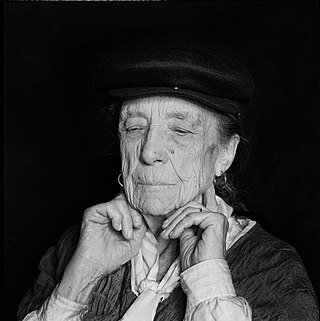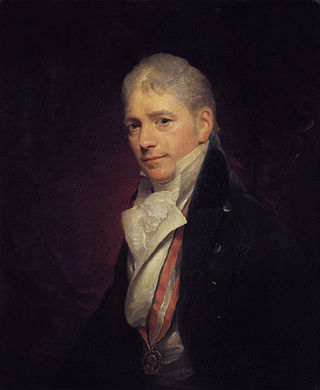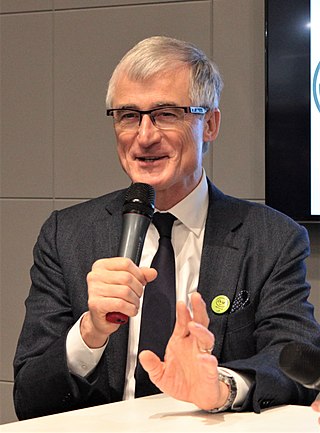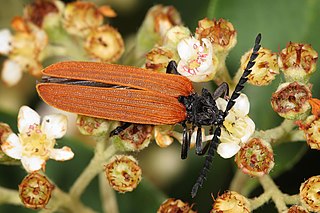The bourgeoisie is a class of business owners and merchants which emerged in the Late Middle Ages, originally as a "middle class" between peasantry and aristocracy. They are traditionally contrasted with the proletariat by their wealth, political power, and education, as well as their access to and control of cultural, social and financial capital.

Léon Victor Auguste Bourgeois was a French statesman. His ideas influenced the Radical Party regarding a wide range of issues. He promoted progressive taxation such as progressive income taxes and social insurance schemes, along with economic equality, expanded educational opportunities, and cooperative solidarism. In foreign policy, he called for a strong League of Nations, and the maintenance of peace through compulsory arbitration, controlled disarmament, economic sanctions, and perhaps an international military force.

Louise Joséphine Bourgeois was a French-American artist. Although she is best known for her large-scale sculpture and installation art, Bourgeois was also a prolific painter and printmaker. She explored a variety of themes over the course of her long career including domesticity and the family, sexuality and the body, as well as death and the unconscious. These themes connect to events from her childhood which she considered to be a therapeutic process. Although Bourgeois exhibited with the Abstract Expressionists and her work has much in common with Surrealism and Feminist art, she was not formally affiliated with a particular artistic movement.
In Marxist theory, bourgeois nationalism is the ideology of the ruling capitalist class which aims to overcome class antagonism between proletariat and bourgeoisie by appealing to national unity. It is seen as a distraction from engaging in class struggle and an attempt to impose interests of capitalists on the proletariat by constructing capitalist interests as "national interests". Internationally, it aims to create antagonism between workers of different nations and serves as a divide-and-conquer strategy. The bourgeois nationalism is contrasted with left-wing nationalism and proletarian internationalism.
Angoulême (L'Angoumois) in western France was part of the Carolingian Empire as the kingdom of Aquitaine. Under Charlemagne's successors, the local Count of Angoulême was independent and was not united with the French crown until 1308. By the terms of the Treaty of Brétigny (1360) the Angoumois, then ruled by the Counts of Angoulême, was ceded as English territory to Edward III. In 1371 it became a fief of the Duke of Berry, before passing to Louis I, Duke of Orleans, both of whom were cadets of the French royal family. From then on it was held by cadets of the Valois House of Orleans, until Francis, Count of Angoulême, became King of France in 1515. Angoumois was definitively incorporated into the French crown lands, as a duchy.

Petite bourgeoisie is a term that refers to a social class composed of semi-autonomous peasants and small-scale merchants. They are named as such because their politico-economic ideological stance in times of stability is reflective of the proper haute bourgeoisie. In regular times, the petite bourgeoisie seek to identify themselves with the haute bourgeoisie, whose bourgeois morality, conduct and lifestyle they aspire and strive to imitate.
Bourgeois pseudoscience was a term of condemnation in the Soviet Union for certain scientific disciplines that were deemed unacceptable from an ideological point of view due to their incompatibility with Marxism–Leninism. For example, genetics was not acceptable due to the role of random mutations of an individual organism in evolution, which was perceived as incompatible with the "universal laws of history" that applied to masses universally, as postulated by the Marxist ideology. At various times pronounced "bourgeois pseudosciences" were: genetics, cybernetics, quantum physics, theory of relativity, sociology and particular directions in comparative linguistics. This attitude was most prevalent during the rule of Joseph Stalin.

Sir Peter Francis Lewis Bourgeois RA was an English landscape painter and history painter, and court painter to king George III of the United Kingdom.
Brent Thomas Bourgeois is an American rock musician, songwriter, and producer. He was co-leader of the band Bourgeois Tagg with Larry Tagg, and has released several solo albums. His later work has been classified in the genres pop and contemporary Christian music.

Geert Albert Bourgeois is a Belgian politician of the New Flemish Alliance (N-VA), which he founded in 2001, who is currently serving as a Member of the European Parliament since 2019. He previously served as the Minister-President of Flanders from 2014 to 2019. Prior to this, he was a member of the federal Chamber of Representatives for the People's Union from 1995 to 2001, and then for the N-VA from 2001 to 2004. He has been involved in local and regional politics in Flanders since 1976.
Rue des Francs-Bourgeois is one of the longer streets in the Marais district of Paris, France.

Le Bourgeois gentilhomme is a five-act comédie-ballet – a play intermingled with music, dance and singing – written by Molière, first presented on 14 October 1670 before the court of Louis XIV at the Château of Chambord by Molière's troupe of actors. Subsequent public performances were given at the theatre of the Palais-Royal beginning on 23 November 1670. The music was composed by Jean-Baptiste Lully, the choreography was by Pierre Beauchamp, the sets were by Carlo Vigarani and the costumes were done by the chevalier d’Arvieux.

The Lycidae are a family in the beetle order Coleoptera, members of which are commonly called net-winged beetles. These beetles are cosmopolitan, being found in Nearctic, Palearctic, Neotropical, Afrotropical, Oriental, and Australian ecoregions.

Burgher arms or bourgeois arms are coats of arms borne by persons of the burgher social class of Europe since the Middle Ages. By definition, however, the term is alien to British heraldry, which follows other rules.

Amandine Bourgeois is a French singer. She was the winner of the sixth edition of the French version of the Pop Idol series Nouvelle Star in 2008. On 26 July 2014, Bourgeois participated in the television game show Fort Boyard.

Louise (Bourgeois) Boursier (1563–1636) was a French Royal Court midwife who delivered babies for many women in her twenty-six year professional career. Marie de Médicis, the wife of Henry the Great of France, was one of her patients, and Bourgeois delivered her six children. Bourgeois' income was about ten times the average midwife's. She believed she was blessed with practical midwifery talents from Phaenarete, the mother of Socrates.
Luke Bourgeois is a former professional tennis player from Australia.
Yvonne Bourgeois was a French tennis player. She competed in the doubles event at the 1924 Summer Olympics with compatriot Marguerite Billout. They reached the semifinal in which they lost in straight sets to Phyllis Covell and Kathleen McKane. In the bronze medal match they lost to Dorothy Shepherd-Barron and Evelyn Colyer, also in straight sets.
Permanent revolution is the strategy of a revolutionary class pursuing its own interests independently and without compromise or alliance with opposing sections of society. As a term within Marxist theory, it was first coined by Karl Marx and Friedrich Engels as early as 1850, but since then it has been used to refer to different concepts by different theorists, most notably Leon Trotsky.
Bourgeois revolution is a term used in Marxist theory to refer to a social revolution that aims to destroy a feudal system or its vestiges, establish the rule of the bourgeoisie, and create a bourgeois (capitalist) state. In colonised or subjugated countries, bourgeois revolutions often take the form of a war of national independence. The Dutch, English, American, and French revolutions are considered the archetypal bourgeois revolutions, in that they attempted to clear away the remnants of the medieval feudal system, so as to pave the way for the rise of capitalism. The term is usually used in contrast to "proletarian revolution", and is also sometimes called a "bourgeois-democratic revolution".









